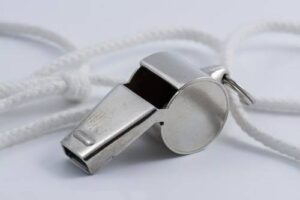How to blow the whistle on fraud in Washington’s financial sector
In recent years, there have been numerous cases of financial fraud in Washington’s financial sector. This has led to significant losses for individuals and organizations alike and has caused widespread concern about the integrity of the financial system. If you have knowledge of fraud in Washington’s financial sector, it is important to blow the whistle in order to help stop the fraud and protect the interests of the public. Here are some steps to help you blow the whistle on fraud in Washington’s financial sector:
Step 1: Understand the Law
The first step to blowing the whistle on fraud in Washington’s financial sector is to understand the law. The Securities and Exchange Commission (SEC) is responsible for enforcing federal securities laws, which include the laws related to financial fraud. The SEC has established a whistleblower program to encourage individuals to report securities law violations, including fraud. The Dodd-Frank Wall Street Reform and Consumer Protection Act, passed in 2010, provides strong protections and incentives for whistleblowers who report violations of federal securities laws.
Step 2: Gather Evidence
The second step is to gather evidence of the fraud. This may include documents, emails, and other records that demonstrate the fraud. It is important to gather as much evidence as possible because this will help to establish the credibility of your claim and increase the likelihood that action will be taken.
Step 3: Report the Fraud
The next step is to report the fraud to the appropriate authorities. You can report the fraud to the SEC by filing a whistleblower complaint using the SEC’s online portal. You can also report the fraud to the Department of Justice or other relevant authorities. It is important to provide as much detail as possible in your complaint, including the names of individuals involved in the fraud, the nature of the fraud, and any evidence you have gathered.
Step 4: Protect Yourself
Blowing the whistle on fraud can be a risky proposition, so it is important to take steps to protect yourself. The Dodd-Frank Act provides protections against retaliation for whistleblowers, but it is still important to be careful. You may want to consult with an attorney to ensure that your rights are protected and that you are not putting yourself in danger.
Step 5: Follow Up
Finally, it is important to follow up on your complaint. The SEC may contact you for additional information, and it is important to respond promptly. You may also want to follow up with the SEC to find out what action is being taken on your complaint.
Additionally, it is important to note that whistleblowers play a critical role in exposing fraud and wrongdoing in the financial sector. In many cases, fraud can go undetected for long periods of time, and it is often the brave actions of whistleblowers that bring these issues to light.
However, blowing the whistle on fraud can also be a difficult decision to make, especially if you work in the financial sector and fear retaliation from your employer or colleagues. It is important to remember that you have legal protections under the Dodd-Frank Act and other whistleblower protection laws and that there are organizations and legal resources available to help protect you.
If you are considering blowing the whistle on fraud in Washington’s financial sector, it may be helpful to reach out to a whistleblower advocacy organization or an experienced whistleblower attorney. These organizations and attorneys can provide guidance and support throughout the process and can help ensure that your rights are protected.
Ultimately, blowing the whistle on fraud in Washington’s financial sector is a decision that should be made carefully, and with a full understanding of the risks and benefits involved. If you have evidence of fraud, it is important to weigh the potential risks against the importance of exposing wrongdoing and protecting the public interest.
As a law firm, we at Paukert & Troppmann, PLLC have extensive experience representing whistleblowers in cases involving fraud in the financial sector. We understand the complexities of whistleblower cases, and we can provide guidance and support throughout the whistleblowing process.
If you are considering blowing the whistle on fraud in Washington’s financial sector, we can help by providing legal advice and representation. We can help you understand your rights and protections under the law and can guide you through the process of reporting fraud and filing a whistleblower complaint.
Additionally, we can help protect you against retaliation from your employer or colleagues. We can provide guidance on how to document any retaliation or harassment and can help you take legal action if necessary.
Overall, we are dedicated to providing the highest level of legal support and advocacy for whistleblowers who are seeking to expose fraud in Washington’s financial sector. We can help ensure that your rights are protected and that you receive the maximum protection and compensation available under the law.
